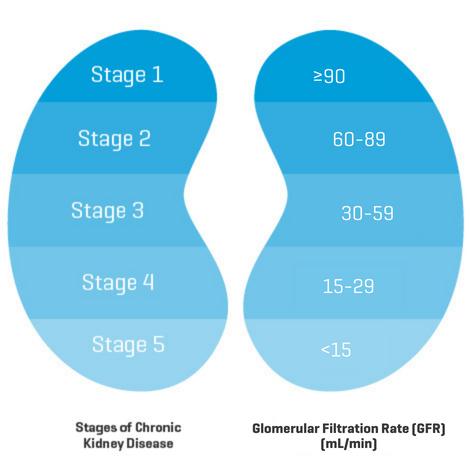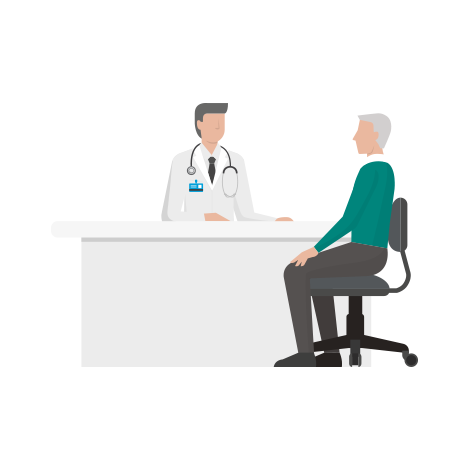Chronic kidney disease Stage 3
At CKD stage 3, your kidneys have been moderately damaged therefore, they are not filtering salts and toxins optimally and maintaining fluid balance may be a problem.

An overview of stage 3 kidney disease
Chronic kidney disease (CKD) is divided into 5 stages based on kidney function, and whether there are signs of blood or protein in the urine.
At CKD stage 3, your kidneys have been moderately damaged and therefore they are not filtering salts and toxins optimally, and maintaining fluid balance may be a problem.
At CKD stage 3, your doctor will be closely monitoring you to see if there is protein in the urine, as higher amounts of protein can mean more risk of CKD getting worse and an increased need for treatments. You may be referred to a kidney specialist, also known as a nephrologist, at this stage.
Symptoms of stage 3 kidney disease
CKD is a silent condition as it does not display any symptoms during the early few stages. The first signs and symptoms typically only begin to appear in stage 3 or later once the decline in kidney function leads to a notable toxin and fluid build-up in the body.
The symptoms of CKD stage 3 may include:
- Fatigue
- Swelling in your hands and feet
- Change in urine colour or volume
- Muscle cramps
- Itch
- Poor appetite
These symptoms may not occur at all or at the same time and may appear only gradually as CKD progresses. However, it is important to be aware of these symptoms during each stage, including what you may experience and why.
Your doctor will also be performing blood and urine tests regularly to gauge your CKD stage and its risk of progression.

Treatment for stage 3 kidney disease
Treatment for CKD stage 3 is aimed at slowing down the rate of progression and managing the health issues caused by declining kidney function.
There are drugs that are effective at reducing further kidney damage and slowing down the progression of CKD. Your healthcare team will be able to discuss these with you. will be able to discuss these with you. Other treatments and changes in diet may also be required for possible health issues that may arise due to CKD, such as anaemia or high salt levels.
There is no requirement for dialysis during stage 3 CKD.

Managing stage 3 kidney disease
Once diagnosed with CKD stage 3, it is important that you make some lifestyle changes and work with your healthcare team to optimally manage your condition. Your doctor may refer you to a nephrologist, to oversee your care in the long run.
Depending on your overall health, the required lifestyle changes can differ, but typically these will include specific changes to your diet, moderate exercises, quitting smoking and limiting alcohol consumption, maintaining a healthy weight, monitoring your general condition, and any other recommendations that your healthcare team may have for you.

Prognosis for stage 3 kidney disease
At CKD stage 3, your kidneys are moderately damaged and kidney function has declined. Treatments can be effective in slowing down the progression of CKD and managing other health issues.
CKD stage 3 is still far from kidney failure, and a diagnosis at this stage can help improve the disease progression as treatment can commence and the progression will be monitored carefully. It is possible to live with CKD stage 3 for years with your kidney disease not progressing to end stage kidney disease.
FREQUENTLY ASKED QUESTIONS
My Kidney Journey Newsletter
Sign up now to receive exclusive content on kidney disease, treatment options, lifestyle tips and inspiring patient stories.
